The Third Day Review TIFF 2020
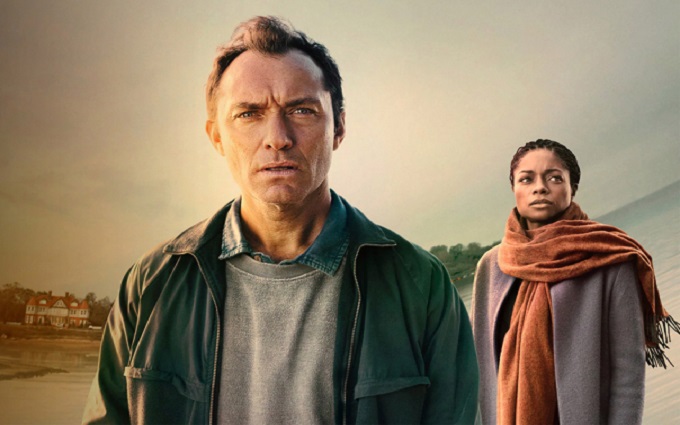
The Plot
Sam a man already dealing with complicated personal problems and a traumatic past ends up unintentionally trapped on a mysterious island off the British coast. Unable to return to the mainland or easily contact the outside world, he grapples to understand the inhabitants and their strange customs. Faced by turns with an idyllic lurid paradise and the constant threat of something more ominous and fiercely dangerous lurking beneath the surface of the clearly complicated townsfolk. Helen another outsider also finds herself drawn in by the pull of the island, on her own quest for answers…
The Good
Co-creator Dennis Kelly bring much of the same unique visual style and warped intensity of his previous series Utopia to screen in this new deeply ambitious project. The screen is drenched in saturated colours, surreal visual cues and purposefully intimate an at times deeply claustrophobic cinematographer. The camera sits uncomfortably close to lead Jude Law during the opening portion of what swiftly becomes a wildly strange journey into the unknown.
The production has a unique format with two episodic portions split by plans for a unique 12 hours live TV event. The initial instalments titled as Summer follow Sam’s journey. The Final chapters as Winter are set to follow Naomi Harris as Helen, another headstrong outsider searching for answers. Inbetween those is the insanely ambitious planned Autumn portion, a half day long single camera continuous broadcast performance. It’s the result of a decade of planning for creators Dennis Kelly and Felix Barrett.
The production boasts as truly sensational cast. Beyond the appealing co-leads of Jude Law and Naomi Harris he supporting cast is casually packed with familiar and very talented faces. Katherine Waterstone, Paddy Considine and Emily Watson are the kind of special acting talents that can ignite even the most simple of scenes into fascinating drama. Collectively they help craft the deeply mysterious and visceral world. The other less recognisable townsfolk are well cast and each inject a brooding sense of mystery and barely concealed sinister peril.
The combination of strange and unsettling imagery, a ruthlessly claustrophobic setting and this all-star cast make The Third Day utterly compelling viewing and a truly unique experience. It remains to be seen just what the planned 12 hour instalment will add to the intense journey already offered by the episodic portions.
The Bad
The hyper-stylised look and feel of the woozy production will be a little too unsettling for some audiences. The effect of overly saturated colours, incessantly point blank camera work and frequently bizarre and ugly imagery will be simply too jarring and strange for more squeamish audiences. The punch-drunk and perverse aura of the production will not be to everyone’s tastes, even if admittedly well crafted.
It’s also a little unclear just how the 12 hours largely improvised live broadcast actually functions. How can the cast and production possibly deliver such a vast and untested form of drama. The obvious potential for disaster is undeniable even if the impressive scope of the ambition is equally certain.
The Ugly Truth
The Third Day is an ambitious and clearly unique piece of event television that is propelled by a fiercely original creative team and one of the most stellar casts assembled for the small screen. Whatever the rest of the production holds in store it will clearly be much discussed event television packed with memorable mysteries.
Review by Russell Nelson
The New Corporation: The Unfortunately Necessary Sequel Review TIFF 2020
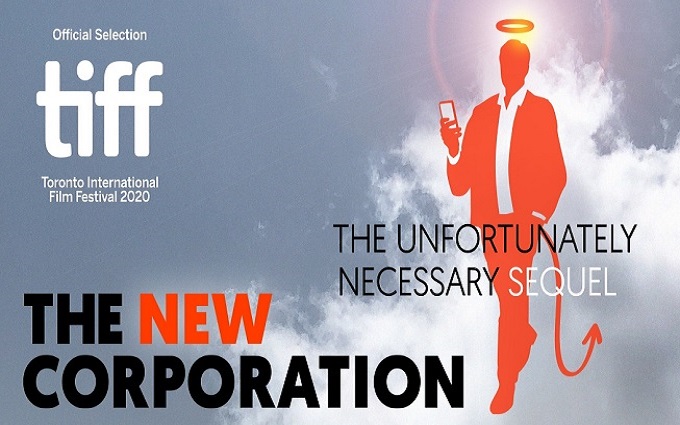
The Plot
A documentary sequel to the landmark 2003 film The Corporation. The original tackled the evolving and problematic effects of Corporations on the economy, environment and society at large. This sequel picks up that damning character assassination by examining the past 17 years of corporate crimes and misbehaviour, including the 2008 global economic collapse.
The Good
In 2003 The Corporation was a piece of documentary cinema that fundamentally changed the public perception of what that word meant, by shining a light on the destructive often outright criminal behaviour of these all powerful and increasingly pervasive global business institutions. It was a damming critique of the greed and borderline psychotic actions of companies fuelled by a constant need for shareholder returns in spite of an astonishing human cost.
This astonishingly well produced sequel proves to be just as well evidenced and articulated a reminder of these deeply uncomfortable truths. Shamelessly intelligent and densely detailed, this new documentary systematically pulls apart the marketing manipulations and false promises of Corporations that have battled to restore their image in the face of an increasingly self-aware and enraged public. Step by step the film outlines the ways in which Corporations have sought to disguise their persistent misdeed with cynically calculated marketing campaigns and by cynically adopting a new language of ‘social responsibility’.
The original documentary examined the inherent dangers of treating corporate entities legally as the equivalent of actual people. In practice often affording them even greater rights and legal protections than individuals. This new documentary now sets out to pose the equally troubling observation that those same Companies are now effectively being treated as the equivalent of major countries. This phenomenon occurring because the sheer scale of economic power held by these companies individually is now actual directly equivalent or even in excess of many national GDPs.
It has long been a universally accepted truth that individuals have no power to hold Corporations to account. The troubling question this film now asks is whether it’s even possible for national political, financial and social institutions to exert any meaningful control on Companies which innately control every aspect of our economic and technological existence. Is it even possible for any one country to fulfil that function, faced with trillion dollar multinational corporations? Entities so vast and beyond the scope of any one jurisdiction that they effectively operate without any form of restraint, totally free of consequence. How can we ever hope to regain any shred of control over Companies which can now treat $14 billion dollar fines as a minor inconvenience, dwarfed by their incalculably vast revenue streams?
This film does a remarkably good job of examining these unsettling questions and establishing the real risks that Corporate interests may ultimately succeed in replacing all basic functions of governments and in so doing extend their control over our lives to even greater and more dangerous extents. The documentary is ruthless in explaining every steps in the worrying road already taken and the obvious perils that lie ahead if we continue our reckless march towards abandoning freedom for the corporate convince of new technologies and seemingly simplified daily lives.
The Bad
As the self-aware title suggests it is unfortunate that this film needs to exist and that the urgent warnings provided by the 2003 original have not stopped any of the abundantly troubling events of the past 17 years.
Though the original film in part catalysed urgent PR offensives to rehabilitate the public images of major corporations, perhaps those shameless attempts to once again trick people into accepting the actions of global corporations as a necessary evil or at least an inescapable reality, have been far too effective. It remains to be seen whether or not this new film can have an even more significant impact on the perceptions and behaviours of Corporations.
While this film is uniquely well crafted it’s also fair to admit that many people will simply want to outright ignore this troubling subject matter, or at least consume it in a far less concentrated form. Although each piece of the film is methodically produced and simply explained, it is apologetically intelligent and demanding viewing.
The Ugly Truth
The New Corporation is an undeniably necessary documentary that should be compulsory viewing for anyone struggling to understand the seemingly complex nightmare of vast global financial ruin and social collapse that ordinary people have endured in recent decades. I urge you in the strongest possible terms to equip yourself with the knowledge to confront these deeply disturbing truths and… WATCH THIS FILM.
Review by Russell Nelson
Penguin Bloom Review TIFF 2020
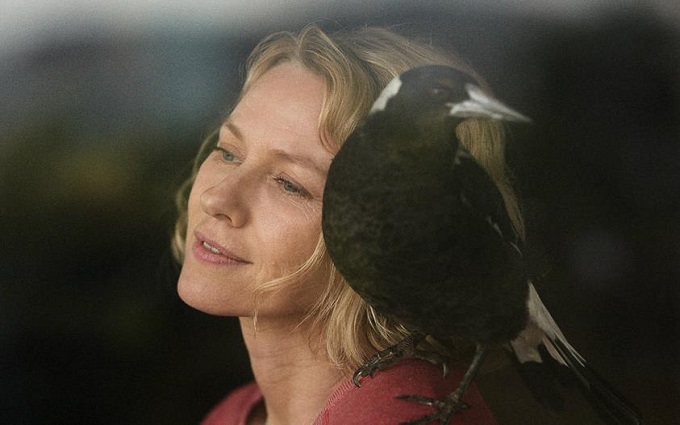
The Plot
Inspired by a true story and a bestselling book, Penguin Bloom follows the poignant journey of a family dealing with the difficult aftermath of a traumatic event whose lives are unexpectedly transformed by adopting an abandoned baby magpie.
The Good
Penguin Bloom is a genuinely poignant look at a families struggle to deal with and overcome the new challenges and emotional burdens of living with life changing disability.
Naomi Watts gives a characteristically unflinching performance as a wife and mother redefining her sense of self after an accident leads leaves her paralysed from the chest down. The talented two time best actress Oscar nominee runs the full gambit of emotions moving gradually from a state of angry despair towards a cathartic and almost euphoric new happiness. Though the physical limitations she portrays are understated on camera, it’s the credibility of her emotional portrayal that if far more impactful.
Alongside Watts The Walking Dead star Andrew Lincoln effectively plays a devoted husband and father. His subtle Australian accent work is particularly flawless to the point of being entirely unnoticeable and his flashes of raw emotion are heartfelt. The young actors playing their three sons are also all equally well chosen and natural in their performances, showing none of the distracting stage school affections all too common in child actors. Together the core cast form a truly plausible family unit.
A brilliant supporting cast lead by the talented familiar faces of Jackie Weaver and Rachel House flesh out the world beyond the immediate Bloom family with warmth and humour. These are particularly invaluable contributions that help to offset some of the film’s bleaker moments and more sombre early tone.
The titular magpie hero named ‘Penguin Bloom’ is obviously a scene stealing star for the production. The well trained authentic aviary hero holds audience’s attention and populates the screen with an endless array of cute moments likely to impact and inspire audiences just as much as they did for the real family.
The Bad
The film requires a degree of patience as the earliest stages are both slow moving and uncomfortably anguished. This is a necessary jumping off point for a tale which is ultimately uplifting and inspiring but nevertheless it challenges audiences to push past that initial discomfort.
This film may also prove particularly challenging for anyone whose life has been similarly effected by life changing medical circumstance. However whilst that might trigger a deeper vein of emotions it will also make such audience members even more appreciative about seeing this journey authentically captured on screen.
The Ugly Truth
Penguin Bloom challenges audiences and is a deeply emotional exploration of an incredibly sensitive subject matter. It remains both authentically upsetting and ultimately inspiring and cathartic. It’s a powerful portrait of family love and true healing.
Review by Russell Nelson
The Way I See It Review TIFF 2020
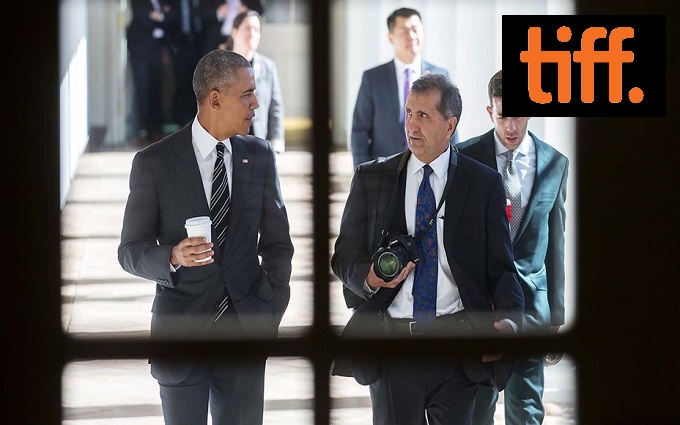
The Plot
A documentary giving voice to former chief official White House photographer Pete Souza allowing him a platform to reflect on his lengthy career and express his views on his intimate time working in the Obama presidency and his clearly strong views on its aftermath
The Good
Throughout a lengthy and much lauded career working with several vastly different presidential administrations from Ronald Regan to Obama, Pete Souza is responsible for many highly iconic images that have consistently captured truly private moments for ‘the leaders of the free world’. The film serves as a very effective portrait of the daily reality of this truly unique role and the relationship Souza enjoyed with his Presidential masters.
The film showcase an astonishing archive of imagery and raw video footage illustrating the moments of presidential history and private triumphs & tragedy that his work captured. It’s an astonishing level of shared access and insight for history buffs. It’s also a very open reflection on the art and purpose of photography, particularly in the modern world. The film is very articulate in assessing the persistent value of still images in a world of 24hr video coverage and digital media.
The film is well composed and set against an upbeat soundtrack this is both jaunty and celebratory. It slickly takes audiences into the most intimate corners of the private corridors of political power. It’s shamelessly sentimental and particularly for those who already look back with nostalgic fondness for the seemingly optimistic Obama political era it will be a welcome escape from the worries of 2020.
The Bad
While Pete Souza has had a unique position and level of access to the highest levels of American political power it’s fairly clear from the opening moments of this documentary that he does have his own personal political views and that this documentary is very much a vehicle for him to express those views.
The film has barely begun when Souza immediately launches into strongly worded attacks on the Trump presidency. It’s perhaps not surprising to hear him express concerns echoed by half of American society, but it’s a clear choice to open the film with an explicit statement that this is a documentary designed primarily to show how a ‘real President should behave’. It immediately turns a shamelessly affectionate celebration of President Obama into an explicitly confrontational political statement. The persistent and explicit running attacks throughout the film on the Trump administration only really serve to make the film even more explicitly partisan.
Likewise while some will admire the work Souza produced, others in an age where every smart phone has a camera will be far less impressed by the simple act of constantly rattling off thousands of shots with a high speed digital camera. Souza’s steady stream of highly emotional often tear stained anecdotes also do risk being seen at times as somewhat self-aggrandizing. There’s only so many times you can proudly remind an audience of how special your job and access was before you start to sound a little too self-important.
It’s no accident that this film is being realised in a Presidential election year and it is undeniably an explicit act of political propaganda by one of President Obama’s most loyal servants. The films persistent overt political campaigning perhaps tarnishes the ability of the film to serve as a more apolitical portrait of the modern American history. In truth the film might as well actually be handing out Vote Biden stickers.
The Ugly Truth
The film serves as a valuable archive of intimate presidential images and footage. Those who admire former President Obama, especially those who loath the current administration will no doubt particularly welcome this shamelessly nostalgic love letter to those 8 years. Those who have a passion and fascination for politics and photography in a wider sense will also find plenty to captivate them. Though it goes without saying those of a different political persuasion will find Souza’s partisan personal opinions to be deeply off-putting.
Review by Russell Nelson
Enemies Of The State Review TIFF 2020
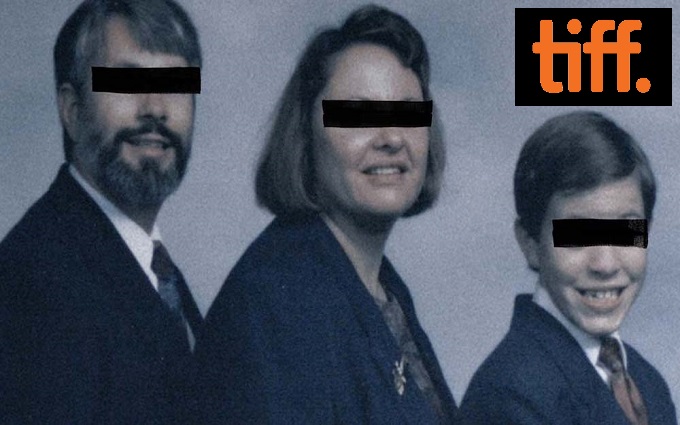
The Plot
A documentary following a seemingly ordinary American family from Indiana entangled in a bizarre web of secrets and lies after their son became a target of major U.S. government attention due to his allegedly criminal online activities, making them all in effect ‘Enemies Of the State’.
The Good
Enemies of The State is a very slickly polished production which delves headfirst into a murky online world exploding into mainstream public consciousness during the era of WikiLeaks and digital activist groups like Anonymous.
Pieced together from a well-crafted combination of dramatic re-enactments and actual in depth interview footage with the family and those connected with all aspects of their journey, it is a fully immersive portrait of Matthew Dehart and the world he inhabited.
What’s perhaps most important is that the film doesn’t merely promote a signal view of a complex case, or allow itself to serve purely as a form of propaganda for a particular political agenda. The film doesn’t shy away from presenting that the full range of allegations against Matt Dehart and presenting both sides of that story with absolutely equal vigour.
The film may be a documentary but at times, propelled by an ominous soundtrack and brooding visuals, it plays out more unashamedly like a wildly fantastic spy thriller that devolves gradually into a gritty crime drama.
The fact that it’s so well documented and coherently evidenced offer potential weight and credibility to at least some of the allegations made by the Dehart family. However the film is more mature and circumspect in reflecting on the evolving evidence in the case ultimately forcing audiences to confront their own preconceptions of guilt and innocence.
While showcasing the critical voices in the film about Dehart’s alleged treatment and the actions of government officials in pursing his case, it also presents enthusiastic argument that Dehart’s actions were legitimately illegal and his case mostly unconnected with any grand conspiracy.
The Bad
While the film offers a compelling documentation of one families journey it likely won’t change the wider opinions audiences will already have about the controversial subject matter of digital activism that ‘leaks’ confidential documents in the supposed greater public interest. Many people will instantly dismiss any legal pressure or consequence suffered by individuals even loosely involved in those actives as entirely self-inflicted.
For many people no matter what allegations of torture or unlawful abuse are levelled on the US government it will be swiftly dismissed as a justified response to deliberate actions of people choosing to deliberately break the law under the guise of ‘journalism’ or other forms of sell styled cyber activism.
It will be particularly easy in this instance for people wanting to dismiss any supposed concerns Matt Dehart’s case may raise by focusing on the fact he was supposedly guilty of online grooming and sexual abuse of minors in addition to his work with the loosely defined online entity Anonymous. These child pornography charges make it immediately harder to generate any meaningful sympathy for Dehart, whatever their actual validity.
Though the documentary works hard to show the family’s persistent outspoken belief that these are false charges politically motivated for national security reasons, it also features the FBI agent involved in those charges articulating them equally strongly and with apparent evidence.
Those charges combined with the family’s involvement with the US military and their admitted contact with foreign governments makes the case against Dehart far more complicated than a simple debate about the merits of whistleblowing. Though the film is fully self-aware of this fact, it may disappoint those hoping this film will purely serve as a critique of the US government and defence of heroic activists.
The Ugly Truth
Enemies of The State is a totally riveting piece of documentary cinema that captures a deeply complex portrait of the reality behind the often dramatized and sensationalised online world we now inhabit. It challenges audiences to ask difficult question about who to truly believe in confusing highly publicized and politicised cases such as this. This is must watch viewing for anyone who has previously found themselves hooked on Making A Murderer or films such as The Imposter.
Review by Russell Nelson